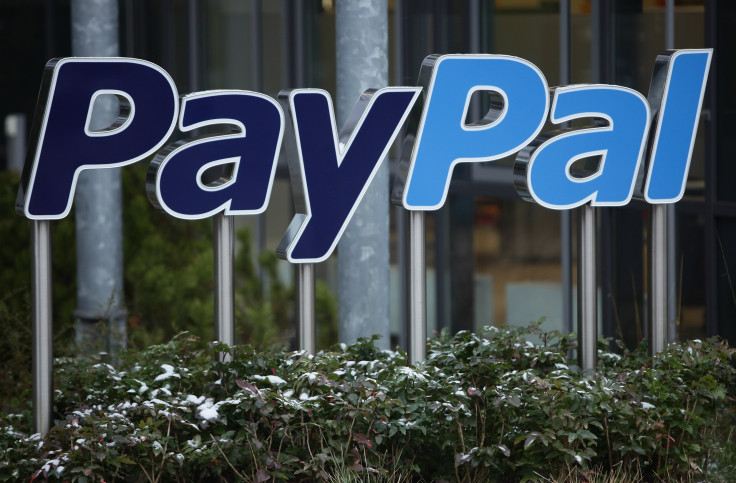Don't Expect PayPal's Buying Spree To End Anytime Soon

Digital payments specialist PayPal (NASDAQ:PYPL) announced Wednesday that it would acquire Honey Science Corp. -- the company behind the deal-finding browser plug-in and mobile app -- for $4 billion. This marks PayPal's largest acquisition to date, dwarfing last year's purchase of iZettle for $2.2 billion. The deal gives PayPal access to consumers earlier in the transaction process and moves the company further into the realm of e-commerce. This is the sixth such acquisition for the company in less than two years.
Don't expect the spending spree to end anytime soon. In a recent interview, PayPal CEO Dan Schulman told Germany's Handelsblatt business daily, "We have a healthy balance sheet and we are ready to put it to work to buy more companies." He went on to say that PayPal was ready to invest up to $3 billion per year to enhance the company's capabilities.
Here's a recap of the other big acquisitions PayPal has made over the past couple of years and how each one expands PayPal's growing network of products and services.
GoPay gives PayPal access to Chinese digital payments market
Just last month, PayPal announced that it became the first foreign payment platform to be licensed to provide digital payment services in China. The company accomplished the herculean feat via its 70% equity stake in Guofubao Information Technology Co. (aka GoPay), a deal that was approved by The People's Bank of China, though the financial terms of the acquisition weren't disclosed.
China has a population of more than 1.3 billion people, and this deal gives PayPal a foot in the door to a highly competitive space, which is currently dominated by Alibaba's Alipay and Tencent's WeChat Pay, which combine to control nearly 90% of the market. China is currently the world's third-largest digital payments market and is expected to overtake the U.S. by 2020. This gives PayPal access to a greenfield opportunity.
MercadoLibre investment targets Latin American market
While not an outright acquisition, PayPal invested a cool $750 million in MercadoLibre (NASDAQ:MELI) back in March, giving the company an entry into the fast-growing digital payments market in Latin America. Unlike GoPay in China, MercadoPago -- MercadoLibre's payment solution -- is the hometown favorite and dominant player in the region. It became so popular, in fact, that it began to offer its services to other e-commerce providers, as well as a growing number of small businesses and brick-and-mortar retailers.
MercadoLibre boasts 306 million registered users and 9.2 million unique sellers on its platform and an untold number of users in its network. PayPal gets access to large swaths of merchant and user data and access to a fast-growing market.
Simility helps PayPal boost fraud prevention efforts
In June 2018, PayPal announced that it had acquired Simility, a leading fraud-prevention and risk-management platform, for $120 million in cash. This much smaller deal gave PayPal the tools it needed to help its member merchants identify and prevent fraudulent transactions. Simility uses artificial intelligence (AI) to fight fraud, and its tools "dynamically adapt and evolve with each transaction."
Hyperwallet aids PayPal's multi-currency needs
PayPal also acquired Hyperwallet in June 2018 for $400 million. The company offered payment distribution services to merchants and individuals who sell goods online. Hyperwallet's competitive advantage was its ability to disburse payments in multiple currencies and in more than 200 countries worldwide, depositing funds into bank accounts, debit or prepaid cards, checks, and PayPal (naturally). It even made the payments available for cash pickups.
Jetlore mines data to predict preferences for PayPal
In May 2018, PayPal acquired AI start-up Jetlore for an undisclosed sum. This move pushed the company further into e-commerce and personalized retail, gaining an AI-driven prediction platform used by some of the world's largest retailers. The tool uses billions of customer data points that allow merchants to better predict clothing features like size, color, style, and fit preferences. It also helps identify the favorite materials and brands of customers to help better drive sales.
By identifying these customer preferences, merchants can better target shoppers with email messages, as well as tailoring the look and feel of homepages and user interaction with apps.
iZettle expands PayPal's reach in Europe
In what was then the company's biggest acquisition to date, PayPal bought small-business tools and payments provider iZettle, in a massive deal valued at $2.2 billion. The company -- which has been called the "Square of Europe" -- brought a platform and payment devices that were the choice of 500,000 merchants in Europe and the Americas.
This move immediately expanded PayPal's operations into various global markets where it didn't have a substantial presence and gave the company inroads into hundreds of thousands of physical stores and access to an even greater number of small merchants.
Expanding its ecosystem and markets
The overriding takeaway from these deals is that each helps PayPal by expanding its capabilities, providing additional features for merchants and customers, thereby expanding its ecosystem. Additionally, by expanding the company's reach in China, Europe, and Latin America, PayPal enters or expands into new markets and cements its position as a global payments powerhouse.
As long as PayPal can continue to build out its functionality and grab additional market share, expect these acquisitions to continue.
This article originally appeared in the Motley Fool.
Danny Vena owns shares of MercadoLibre, PayPal Holdings, Square, and Tencent Holdings. The Motley Fool owns shares of and recommends MercadoLibre, PayPal Holdings, Square, and Tencent Holdings and recommends the following options: short January 2020 $70 puts on Square and short January 2020 $97 calls on PayPal Holdings. The Motley Fool has a disclosure policy.




















